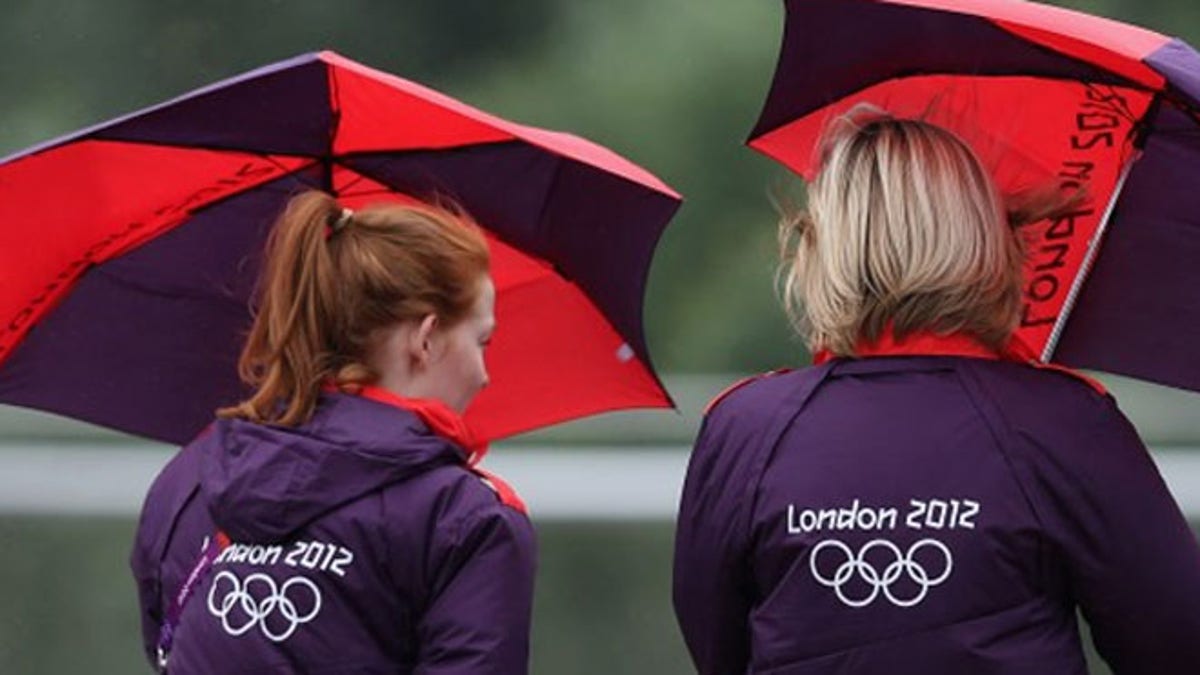
(AP)
LONDON – Welcome to Britain! The line forms to the right. Here are some tips for Olympic visitors hoping to get the most out of their experience.
WHEN IN DOUBT, QUEUE
For many visitors, their first experience of the great British tradition of lining up will be at Heathrow Airport. Europe's busiest air hub has been making headlines over the past few months for its long waits at immigration. Officials promise the problem has been fixed for the games, but — fear not — visitors will have plenty of other opportunities to stand in line at post offices, bus stops, subway stations and the entrances to the Olympic Park.
British lines are usually orderly, often elaborate and full of gallows humor. Be patient and don't try to barge ahead — all attempts at queue-jumping will be met by glares and furious tut-tutting.
DON'T LIKE THE WEATHER? WAIT FIVE MINUTES
Britain is an island nation — "this precious stone set in the silver sea," as Shakespeare put it.
Silver, but also stormy. The country's famously fickle climate has caused pre-Olympic misery, as the wettest June and early July on record caused floods, disrupted transit and forced the cancellation of sports events.
This week, sun and heat have appeared, causing heat-buckled pavements and trains delayed by overheated rails.
Britons have learned to cheerfully accept that all forms of weather are bad news. It's best to prepare for the worst and treat the weather as a useful conversation-starter — though once on the topic, many Britons find it hard to stop.
And heed the advice of Olympics chief Sebastian Coe: "People do need to be wearing the right footwear, the right rain-proof clothing — and sunscreen."
DRIVE ON THE LEFT, STAND ON THE RIGHT
British cars drive on the left, which can provide a potentially lethal surprise to visitors not from Australia, Japan, or the other handful of countries that do the same. When walking, remember your mother's advice and look both ways before you cross the street.
In London Underground stations, the same rule applies: keep left while moving. This is especially important on escalators — nothing annoys commuters more than tourists blocking their progress. If you remember only one thing about London etiquette, let it be this: stand on the right side of the escalator, walk on the left.
GET A ROUND IN
Britons take great pride in their sense of fair play. Many visitors will encounter it in pubs, where each member of a group is expected to take a turn buying a round of drinks for everyone. Buying a drink only for yourself is considered exceptionally rude.
TIP MODESTLY
American visitors are advised to pare back the amount they tip for services in Britain. In restaurants, it's customary to add 10-15 percent to the bill. In pubs where you order and pay at the bar, tipping is unnecessary.
Many locals do not tip taxi drivers — although visitors will find that London's famous cabbies possess a detailed knowledge of the city that often comes in handy. Any tip will be gratefully received.
ACCEPT SLIMMED-DOWN PORTIONS
Like tips, restaurant portion sizes are often smaller in Britain than in the United States and some other countries. Two U.S. diners at London's Oxo Tower restaurant were recently heard remarking about their tiny portions and the sizable prices.
"Meals are definitely bigger and cheaper in Texas," one man remarked as a waiter brought him three small venison slices with a squirt of puree.
AVOID EYE CONTACT
In common with many big-city residents, Londoners scrupulously avoid acknowledging strangers on the street. This is especially true on crowded buses and subways.
Exceptions: Buses, trains and subways full of people who have had a few drinks will often be full of boisterous but generally friendly banter. And during travel disruptions, camaraderie will triumph over social awkwardness, unleashing a latent "Blitz spirit" that can be unexpectedly jolly.
ENJOY THE WORDPLAY
North American visitors will quickly learn that many common, everyday items have different names in Britain — fries are chips, a sidewalk is a pavement, pants are trousers and underwear is pants.
"Pants" is also slang for bad, rubbish, lame — just one example of the delight Brits take in coining new words and phrases.
The Olympics has added a trove of new phrases. They include jubilympics — the period from the queen's Diamond Jubilee in June through the Olympics, which end Aug. 12 — and omnishambles, a word first applied to government screw-ups that has been used to describe the crisis-prone buildup to the games.
YES, THAT MAN REALLY IS THE MAYOR
Above all, Britons love an eccentric. That may explain the popularity of London Mayor Boris Johnson, a disheveled, bicycle-riding, Latin-spouting figure with a shock of blond hair who was re-elected to a second four-year term in May.
Johnson's behavior at Friday's opening ceremony is one more unpredictable element in an evening of surprises. Bookmaker William Hill is offering odds of 33-1 on the mayor accidentally setting his hair on fire with the Olympic flame.
___
Associated Press Writer Paisley Dodds contributed to this report.
Jill Lawless can be reached at http://Twitter.com/JillLawless
